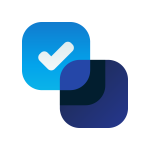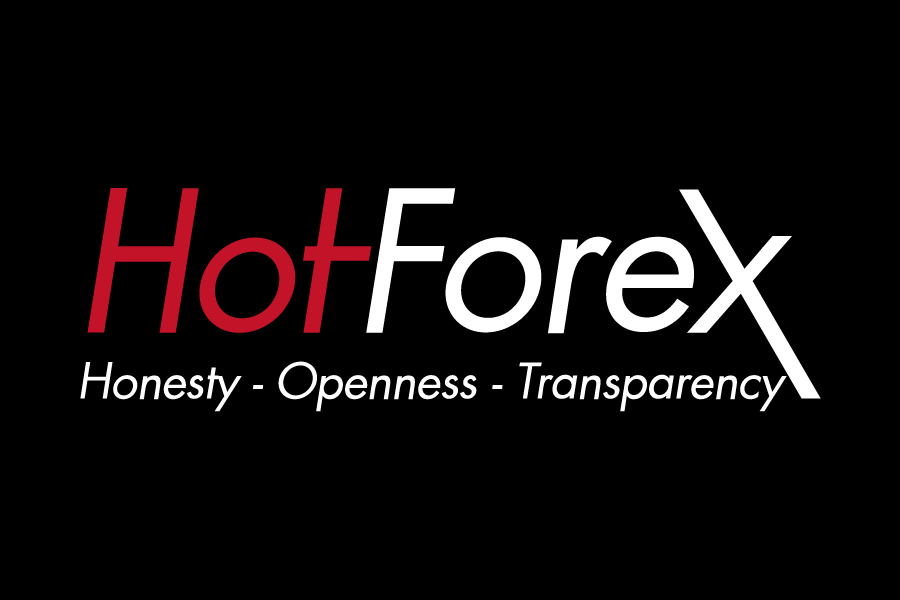The Best Forex brokers with ZAR accounts
Catalogue
Forex trading is booming in South Africa. It is estimated that compared to last year the number of beginner traders from South Africa has increased by 30%. It is not surprising, as the Forex is becoming more and more accessible in terms of affordability and availability of educational resources. However, South African traders need special trading conditions to create an ideal atmosphere for them. These conditions primarily depend on the possibility to trade in local currency – the South African rand and to be able to deposit and withdraw funds in ZAR. Unfortunately, not every broker is supporting ZAR trading and moreover, a vast majority of them will only allow traders to open accounts in either EUR or USD.
The importance of trading in your local currency cannot be diminished in securities markets. If there is a need for currency conversions, it means that you will have additional costs of trading. The brokers will not provide the best exchange rate, as it is in their interest to profit from your conversions. Hence, you would need to look for the brokerage company that supports accounts in multiple currencies and ideally your local currency, as well.
Apart from avoiding the finances lost during the currency conversions, the availability of ZAR accounts has another significant benefit for South African traders. Since ZAR represents their national currency, it is also the most well-known and familiar currency for SA traders. This essentially means that they will be the very first ones to expect upcoming volatilities in the value of the currency, as they are the first ones to access the local market news. Furthermore, the South African rand represents a very attractive asset since it fluctuates a lot, leaving room for highly profitable trades.
In this article, we will be presenting the best Forex brokers that offer ZAR accounts for South African traders with the most convenient conditions. We will also talk about the specifications of the currency and its position in the Forex market, as well as essential tips that ZAR Forex traders should be aware of.
Top 3 brokers with ZAR accounts
 As we have mentioned in the above paragraph, the number of brokers offering ZAR accounts is truly limited. We are left with dozens of brokerage companies that need further filtering according to the quality, cost-effectiveness, and trading conditions. After the thorough research, we can list all the brokers that are able to support South African traders with ZAR accounts and at the same time offer a competitive trading environment, low spreads, little to no commission, and promotions, in some cases, as well.
As we have mentioned in the above paragraph, the number of brokers offering ZAR accounts is truly limited. We are left with dozens of brokerage companies that need further filtering according to the quality, cost-effectiveness, and trading conditions. After the thorough research, we can list all the brokers that are able to support South African traders with ZAR accounts and at the same time offer a competitive trading environment, low spreads, little to no commission, and promotions, in some cases, as well.
We have first isolated the list of the FSCA-regulated Forex brokers (the Financial Sector Conduct Authority) to find the companies that work closely with South African markets. Then we have reviewed every individual broker to identify which one has ZAR accounts and affordable and high-quality trading conditions, at the same time. Below is the list of the top three Forex brokers offering ZAR accounts that are dominant on the market thanks to the highly competitive trading environment.
XM

Starting Capital
$5
Financial License
CySEC, FCA, ASIC
Promotion
$30, 50%+20%
Financial Leverage
1:1000
Established
2009
Trading Software
MT4, MT5, WebTrader
Plus500

Starting Capital
ZAR 1,500
Financial License
FCA, CySEC, ASIC, FSCA, FMA
Promotion
25%
Financial Leverage
1:300
Established
2008
Trading Software
MT4
HotForex

Starting Capital
5 USD
Financial License
FCA, FSA, DFSA, FSCA
Promotion
100%, 30%, 100%
Financial Leverage
1:1000
Established
2010
Trading Software
MT4, MT5, WebTrader
XM ZAR account
XM is a leading brokerage company with multiple licenses, including the regulation from the Financial Sector Conduct Authority (FSCA), making it one of the most reliable Forex brokers for South African traders. XM was also one of the first brokers to offer ZAR accounts to its traders with highly convenient conditions. The XM minimum deposit in ZAR is only 75 South African rands, which is currently the lowest deposit requirement for South African traders available on market. Furthermore, XM offers various trading account types, including the XM Ultra-low trading account with the tightest spreads.
HotForex ZAR account
HotForex is another highly-regulated Forex broker with licenses from DFSA, FCA, FSA, and most importantly the FSCA. The broker also provides one of the most diverse trading instruments’ portfolios with over 1000 asset classes supported. The HotForex minimum deposit in ZAR also starts at 75 South African rands and increases together with the account benefits’ level. The most popular HotFore account for professional traders – A zero spread account, requires a minimum deposit of around 3,000 ZAR. HotForex also offers several promotional packages, including a 100% credit bonus, 100% supercharged bonus, and 30% rescue bonus along with high-paying performance-based trading contests and an extensive loyalty program.
Plus500 ZAR account
You can easily trade ZAR currency pairs with Plus500, which is the dominant player on the market. The Forex broker is regulated and licensed by the Financial Sector Conduct Authority in South Africa together with numerous authorizations from reputable financial authorities across the globe. Plus500 allows South African clients to start trading with a minimum deposit of 1500 ZAR, which constitutes around 100 USD and is fixed to the USD price. The broker is known for its highly advanced trading platforms and hundreds of different financial trading assets available for investment.
What ZAR Forex trading accounts can offer
 The ZAR Forex accounts are very beneficial to traders operating in South Africa. This will allow you to reduce the cost of fees that can occur during the exchange of currency for withdrawals or deposits. With the help of a ZAR trading account, South Africans can make deposits to their regular bank account and avoid the conversion charges which you pay for the USD or EUR account. A ZAR Account means that all funds you deposit at the broker’s account will be held in South African Rand. The ZAR trade account also implies that the funds you trade with are stored in an account in a South African bank account, making withdrawals and deposits quicker.
The ZAR Forex accounts are very beneficial to traders operating in South Africa. This will allow you to reduce the cost of fees that can occur during the exchange of currency for withdrawals or deposits. With the help of a ZAR trading account, South Africans can make deposits to their regular bank account and avoid the conversion charges which you pay for the USD or EUR account. A ZAR Account means that all funds you deposit at the broker’s account will be held in South African Rand. The ZAR trade account also implies that the funds you trade with are stored in an account in a South African bank account, making withdrawals and deposits quicker.
Furthermore, ZAR account Forex brokers are most likely to be regulated by the local financial authority of the country – the Financial Sector Conduct Authority (FSCA), otherwise offering ZAR accounts would be impossible, as brokers would not be able to hold traders’ funds at local banks. The FSCA regulation is a huge benefit for SA traders, as it guarantees the safety of their trading capital. The FSCA monitors various financial markets in the country, including Forex, and investigates any fraudulent cases involving South African citizens and/or its regulated firms. However, there are a limited number of brokers in South Africa who have ZAR accounts at present. They all claim to offer the same or comparable trading conditions and features. Therefore, choosing the most reliable ZAR account broker isn’t simple.
South African rand overview
The South African rand (ZAR) was introduced in February of 1961 shortly prior to the Republic of South Africa was created. The rand substituted that of the South African pound at a rate of 2 rands for 1 pound.1
In the 1970s the rand was worth approximately R1.5 for each U.S. dollar (USD). In the following decades, the exchange rate for rand has decreased or diminished which means it became more expensive for the rand to convert it to 1 U.S. dollar. R2.55 was needed to convert into one USD in the year 1990, and in 1999 it was R6.14 to USD.
The reserves
 The South African Reserve Bank (SARB) model is based after modeled on the Bank of England (BoE) The SARB is the central authority for monetary matters in South Africa and issues its currency. In addition to the responsibilities to banks, SARB is also known as a lender in certain instances and a clearing institution, as a major custodian of gold.
The South African Reserve Bank (SARB) model is based after modeled on the Bank of England (BoE) The SARB is the central authority for monetary matters in South Africa and issues its currency. In addition to the responsibilities to banks, SARB is also known as a lender in certain instances and a clearing institution, as a major custodian of gold.
The central bank is responsible for the attainment and maintenance of the price stability of the local currency. This includes intervention on the Forex market when required. It is interesting to note that the SARB is a privately owned company with over 800 shareholders. They are controlled by holding less than 1 percent of the total amount of remaining shares. The aim is to guarantee that the best interests of the nation’s economy over the interests of private individuals. To keep this policy in place the governor and 14 members of the board oversee the bank’s activities and strive to achieve monetary goals.
The Rand Monetary Area
The creation of the Rand Monetary Area (RMA) in 1974 permitted Swaziland, Botswana, and Lesotho to create currencies that were specific to their countries. Prior to signing the accord, those nations were part of an informal arrangement between the same countries, where there was only South African currency circulating.
In the RMA agreement, the South African rand remained as a legal currency in all member states and was circulating with the national currency of members. Botswana pulled out of the agreement in the year 1975. In 1986, after the massive depreciation of the rand and the subsequent devaluation, the countries replaced the RMA with the Common Monetary Area (CMA). The CMA as well as the Southern African Customs Union work together to support member countries.
The historical price of ZAR
The majority of the time the value of the rand was tied to the price of gold, South Africa’s most important export in the beginning. Recently the rand has become slightly correlated to gold prices since the South African economy still relies on gold exports. Gold is South Africa’s most popular export, accounting for 15% of the total exports in the year 2019 or $16.8 billion.
However, significant global developments have also influenced ZAR’s price direction. 9/11 and the subsequent September 11 attacks of 2001 caused global panic and the rand experienced an extreme plunge, plummeting to R13 for each U.S. dollar (USD). After the currency stabilized for a few years the rand was one of the emerging market currencies to be affected in the financial crisis of 2007-2008. Emerging market currencies were hit when investors sought safer currencies like the U.S. dollar and the Japanese yen (JPY). During the twelve months from January 2008 to January 2009, the rand was down more than 35 percent when compared to that of the U.S. dollar.
During the worldwide coronavirus outbreak, the rand fell to less than R17 per USD. It then by August 2021, had retreated to around R15 per USD. At the time of writing this article, ZAR stands at R15.08 per USD.
How to find the best ZAR account?
If you follow our list, you will see that there are at least 10 Forex brokers offering ZAR accounts. We have also mentioned the top 3 brokers according to our opinion, experts’ analysis, and the reviews of the experienced traders. However, if it seems like you do not wish to trade with any of these three brokers, or you have had a bad experience with any of them, you can follow our advice on how to find the perfect ZAR account. We suggest that you start with the regulation.
First of all, find the brokers that are regulated by your local financial authority. That is Financial Sector Conduct Authority (FSCA) for South Africans. The very primary reasons for looking for FSCA-approved brokers are the safety of your funds and the privacy of your personal data. If you appear to have any issues with any of the FSCA-regulated brokers, you can easily submit the claim and the authority will investigate the case to reimburse any damage brought to you or your financial wellbeing. However, another reason is simply that non-FSCA regulated brokers are highly unlikely to offer ZAR accounts. As offering ZAR accounts means that the broker should have an account at your local bank in SA, such action is prohibited unless the broker has permission to operate within the country.
After you find the list of FSCA regulated Forex brokers, you can filter them out according to the minimum deposit requirement, the spread levels, leverages, commissions, available trading assets, supported trading platforms, promotions, or anything else you are looking for. For instance, none of the top 3 brokers that we have mentioned above charge commissions. All of them offer flexible leverages and have spreads below 1 pip on EUR/USD pair. You can also read the individual reviews of these websites if you would like to hear the opinions of the experts in the field or other South African traders.















Comments (0 comment(s))